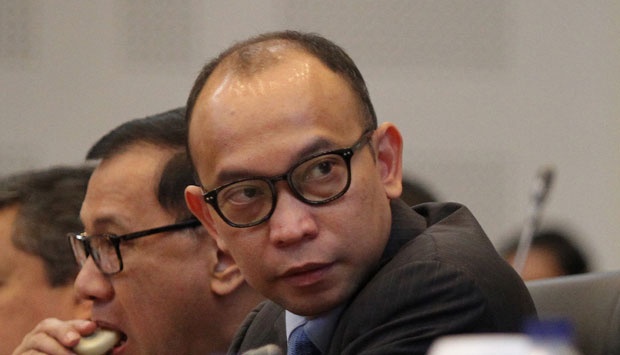Finance Minister M. Chatib Basri: Subsidies are for the poor
19 October 2018 22:58 WIB

If there was a competition to seek a quick-acting cabinet minister who makes an impact on the public, the most likely winner would be Chatib Basri. Just a month into his job as finance minister - replacing Agus Martowardojo who became the new central bank governor - he dared to raise the price of subsidized fuel. For a month, Chatib himself fought for it at the House of Representatives (DPR) by analyzing the 2013 Amended State Budget. The DPR finally approved changes to allocate Rp9.32 trillion to cover the temporary direct cash assistance for the poor, to compensate for the fuel price increase.
This fuel policy is nothing new to Chatib, since he is not a stranger among other economists in the cabinet. Ten years ago, he advised Boediono - who was the finance minister to President Megawati - when he was instructed to raise the price of premium gasoline from Rp 1,500 to Rp 1,810 per liter. From then on, Chatib found himself posted at Lapangan Banteng - site of the office of the Coordinating Ministry for the Economy and the Finance Minister - as advisor to Boediono and expert staff to Sri Mulyani Indrawati. Over that period of time, President Yudhoyono raised and lowered fuel prices seven times.
Chatib clearly understands that his one-year tenure will not just be spent managing the fuel subsidy. A number of issues at the finance ministry needs to be addressed, from continuing unmet tax revenue targets to the late or non-disbursement of ministerial budgets and resuming the bureaucratic reforms many people feel have failed.
Two weeks ago, Chatib agreed to be interviewed by Tempo reporters Agoeng Wijaya, Tomi Aryanto, Taufiqurohman and Angga Sukma Wijaya at his finance ministry office. Excerpts:
The government planned to raise fuel prices many times, but always failed to do it. Why now?
Raising fuel prices must be done now. I cannot control the global economic situation. I also have no authority to block Ben Bernanke (US Federal Reserve Bank chairman) from applying quantitative easing by buying financial assets to inject fresh funds into the economy. But at least, I have done my domestic task and that's the fuel subsidy issue.
What do you mean this fuel price increase is to bring justice?
So far, the subsidy structure has been unjust. Many rich people who own cars are able to enjoy these subsidies. The fuel price at the international market is Rp 9,000 per liter, yet we sell it at a subsidized price of Rp 4,500 per liter. So each car consumes a Rp 4,500 per liter of subsidized fuel. If a car consumes 10 liters a day, the owner would only be paying Rp 1.35 million per month because Rp 45,000 is paid for by the government. How can we not see this as a problem? By increasing the price, there will be a redistribution of revenues, from the rich to the poor.
You said the increase in subsidized fuel will redistribute income from the rich to the poor. Do you mean through the temporary direct cash assistance to the people?
Yes. The cash assistance (popularly known as BLSM) was given to anticipate the rise in the number of poor people as a result of the fuel price increase. According to the National Development Planning Board (BPPN), if the price of fuel was raised to 44 percent as it is now, with the poor population rising from 10.5 percent to 12.1 percent, that means the number of poor people will increase to about 4 million people.
How did you come to the amount of Rp 150,000 per month of cash assistance, which only last for four months?
Empirically speaking, the impact is felt in three to four months, then there is less of an impact. So, when inflation rises, people will still have some money, which is an additional Rp 150,000 a month or about 30 percent of the income of people below the poverty line, which is Rp 450,000 per month. The additional money is expected to be enough to cover their consumption, but not big enough to make them lazy. If the cash assistance is too big, then they won't want to work.
The Energy and Mineral Resources Ministry recently proposed that oil and gas contractors be given tax incentives. What do you think?
In principle, I must remind you of the importance of a limited budget, so that the government must enter into non-commercial issues, like sectors which are unprofitable. For example, the development of basic facilities, like clean water and village infrastructure. But with regards to the private sector which can earn huge profits, let them be. Why should we raise their profits? I wouldn't mind if the fiscal incentive were to be offered to raise oil production. But all that must be calculated. In that way, budget allocations can be focused on public interests.
The full interview is available on print in this week's edition of Tempo English (July 8).





















